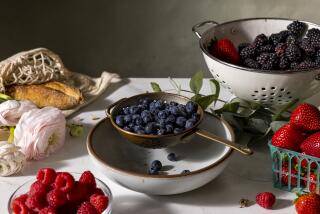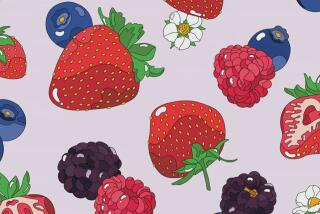Royal jelly: a lot of buzz, but few studies
- Share via
Honey, the best-known bee product, has been valued by humans throughout history. But only recently has interest grown in another bee product, royal jelly. The substance, which is secreted by young worker honeybees, is a mixture of protein, amino acids, sugars and vitamins that is fed to the queen bee, causing her to achieve extraordinary size, fertility and longevity.
*
Uses: Some manufacturers claim royal jelly can fight infection and help prevent colds. It is also used for its purported ability to improve cardiovascular health and to slow aging.
Dose: 50 to 100 milligrams daily in capsules or tablets.
Precautions: Royal jelly is dangerous for people with allergies to honey or bee pollen. (Bees secrete enzymes into the pollen they collect from flowers and store in hives. This is known as bee pollen.) People with a history of asthma and allergies should also avoid it.
Research: There is some evidence that royal jelly has antibacterial properties and may help lower cholesterol. Few data exist to support its effectiveness as an anti-aging tonic.
Dietary supplement makers are not required by the U.S. government to demonstrate that their products are safe or effective. Ask your health-care provider for advice on selecting a brand.
-- Shari Roan


